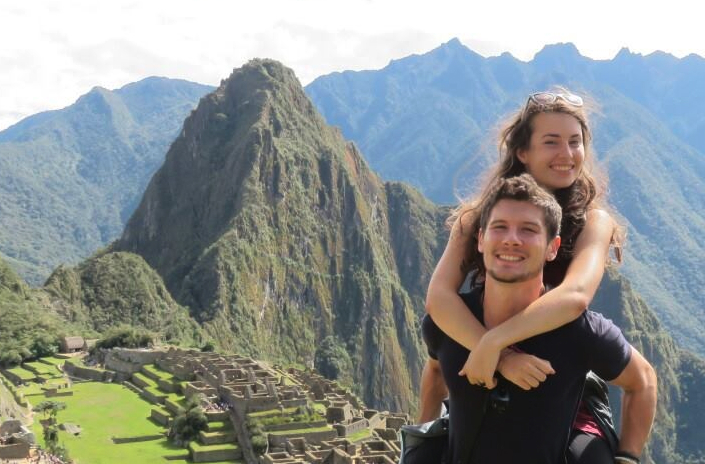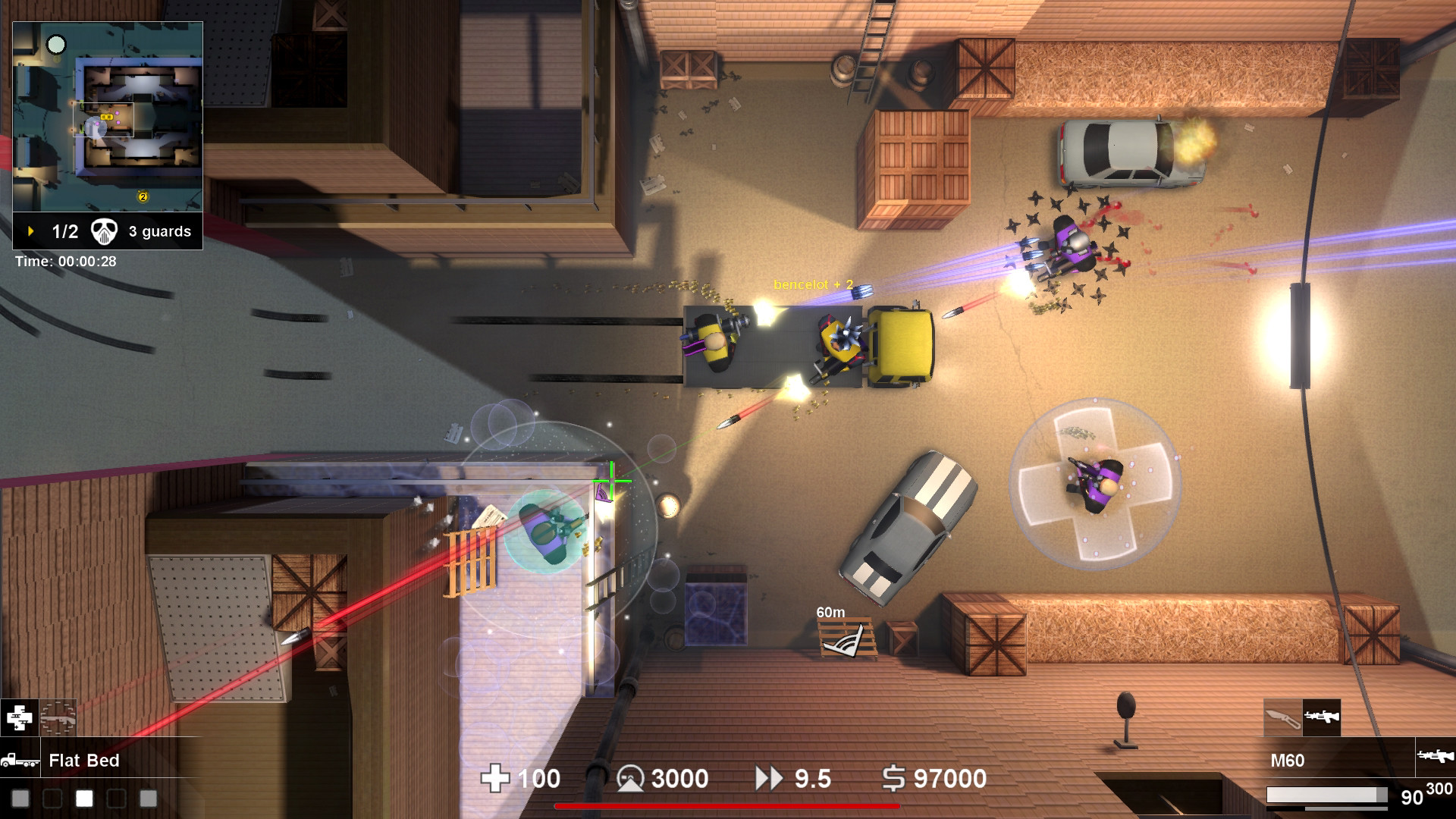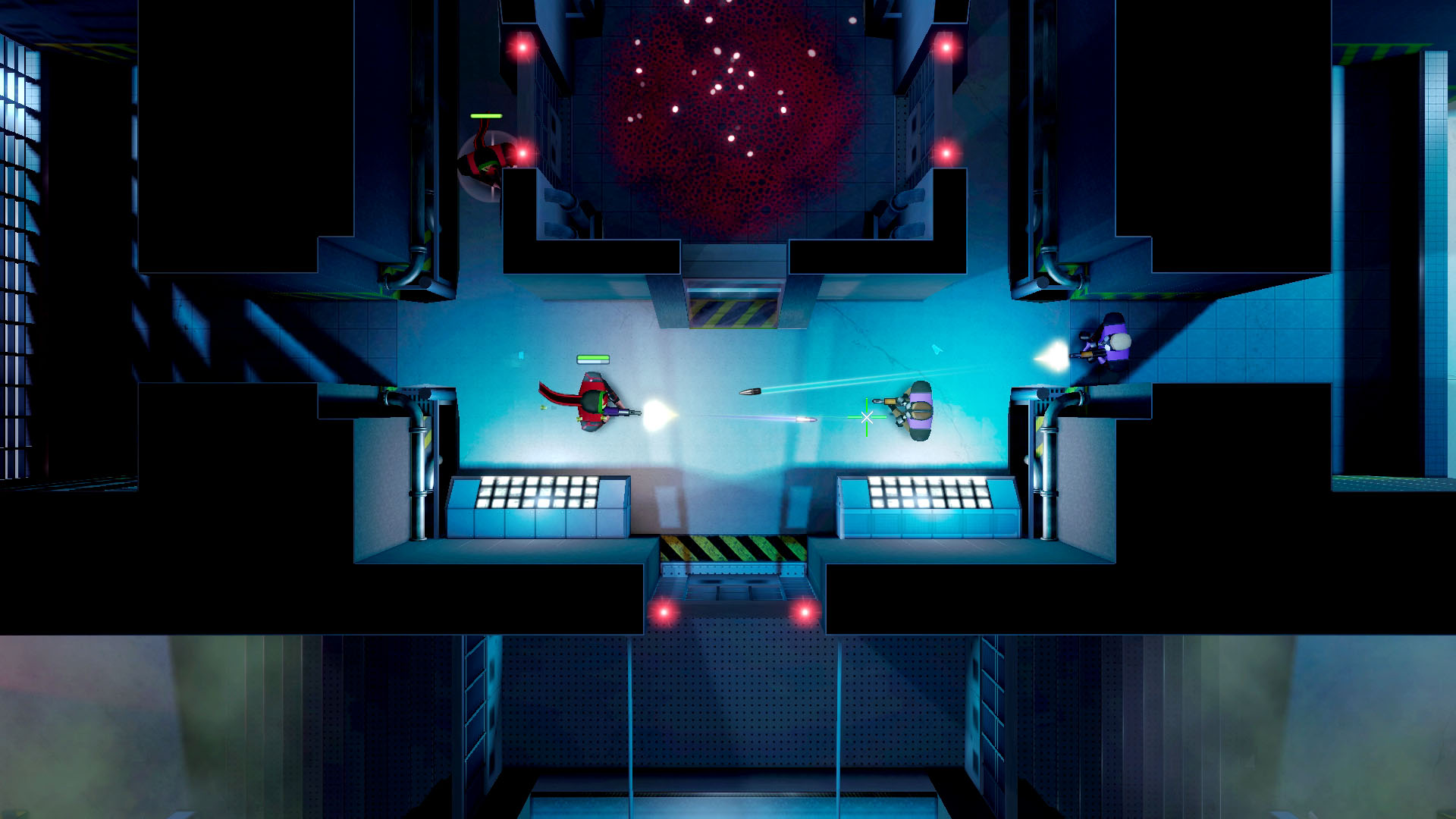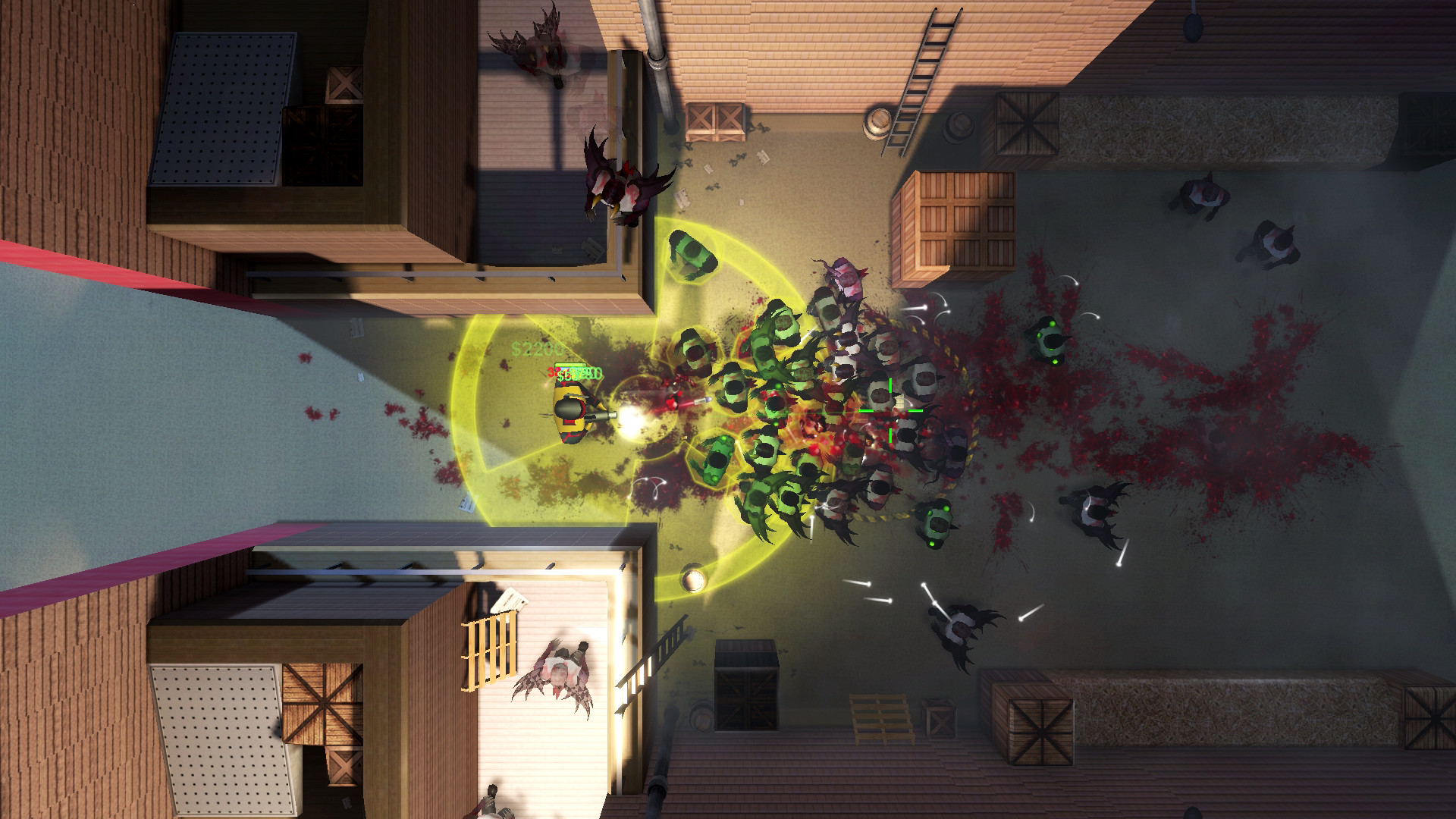Meet the indie dev who spent two years making a game in youth hostels abroad
Ben Johnson left Australia and wound up in Peru to save money making his eight-year passion project.
Keep up to date with the most important stories and the best deals, as picked by the PC Gamer team.
You are now subscribed
Your newsletter sign-up was successful
Want to add more newsletters?

Every Friday
GamesRadar+
Your weekly update on everything you could ever want to know about the games you already love, games we know you're going to love in the near future, and tales from the communities that surround them.

Every Thursday
GTA 6 O'clock
Our special GTA 6 newsletter, with breaking news, insider info, and rumor analysis from the award-winning GTA 6 O'clock experts.

Every Friday
Knowledge
From the creators of Edge: A weekly videogame industry newsletter with analysis from expert writers, guidance from professionals, and insight into what's on the horizon.

Every Thursday
The Setup
Hardware nerds unite, sign up to our free tech newsletter for a weekly digest of the hottest new tech, the latest gadgets on the test bench, and much more.

Every Wednesday
Switch 2 Spotlight
Sign up to our new Switch 2 newsletter, where we bring you the latest talking points on Nintendo's new console each week, bring you up to date on the news, and recommend what games to play.

Every Saturday
The Watchlist
Subscribe for a weekly digest of the movie and TV news that matters, direct to your inbox. From first-look trailers, interviews, reviews and explainers, we've got you covered.

Once a month
SFX
Get sneak previews, exclusive competitions and details of special events each month!
There's an unspoken rule in backpacker hostels that says: if you drape a sheet over your bunk creating a makeshift, but entirely see-through, curtain you're allowed to have sex in it. I learned this one evening while passing through Cairns, Australia when two lustful roommates constructed such a make-do and very-not-soundproof barrier before having at it into the wee hours of the morning.
Shocked, I told some other residents of the ordeal the next morning but was informed this was standard and accepted practice—that in four-share dorms how else were you expected to get privacy? To be fair, they were less understanding of the sleepwalking girl who dropped her drawers and took a piss in the corner of our six-share room in Brisbane the week before. Seriously.
Living in these places, then, can be tough—but for lone indie developer Ben Johnson, foreign youth hostels took on the role of both home and office for two years. Johnson is incidentally from Australia, but it was while travelling outwith his native county that he continuously developed and brought his debut venture—the top-down GTA2-inspired action shooter Geneshift—to Steam's Early Access platform.
"The timeline was: I quit my job in 2014 and then a month later Geneshift got Greenlit," Johnson tells me. "My intention was to quit my job with the aim of finishing the game for my own satisfaction, not knowing if it would get onto Steam or not. I wanted to do some travelling anyway—but I thought it would be three months around Europe and then I'd come back to Australia and get a real job again.
"A month into travelling I got an email from Steam telling me the game had been Greenlit and that started the wheels in my head. I thought: maybe I should spend less time in Europe, which is expensive, and head to South America where it's a lot cheaper. Seeing as I was already out off on my way, I could commit to [the game] 100 percent."
Raised on typically time-consuming games like Final Fantasy 7 and Diablo 2, Johnson moved onto Counter-Strike as a teenager, playing in internet cafes on TeamSpeak servers during the shooter's early years. From that point on, he became hooked on multiplayer games and latterly discovered Soldat—a 2D sidescrolling multiplayer that's said to draw from Counter-Strike and Worms.
On finishing university, Johnson planned to create his own game for resume purposes. In his mind, this would take the form of six-month Soldat-inspired online multiplayer project that'd be top-down instead of side-on and would "chuck in some cool vehicles" in the process. "I loved GTA2 as a kid," he says. "It grew from there."
Keep up to date with the most important stories and the best deals, as picked by the PC Gamer team.
In 2009, Johnson finished the demo for what was then known as Subvein and invited his buddies from the Soldat community to try it. He admits that if he'd put the game up and no one had played it he'd have happily retired there and then, but this close-knit playerbase loved it. Many of them are still playing today.
The forums started growing and what had begun as a hobbyist side venture began dominating Johnson's spare time. Work at an online gambling firm served as a means of funding whichever "cool features" he felt like casually implementing week-on-week, and ultimately financed his ventures abroad.
By 2014 Johnson had left the land Down Under and Mutant Factions, as it then went by, was Greenlit on Steam. Suddenly, taking his game more seriously seemed like a feasible move and thus settling down away from home made most sense from a fiscal perspective.
"When I was deciding to move continents it was a toss up between South East Asia and South America. In terms of continents, roughly speaking, they're the cheapest ones which have working internet and what not. Because I'd already been to Thailand before, I wanted to try somewhere new and wanted to learn Spanish.
"Up until I got to Peru, the game was strictly multiplayer—it has single player now but before that it didn't. I did struggle to maintain full servers. Oftentimes there were long periods where you'd only get like one or two small games a day. Between 2009 and now, enough people discovered the game and got involved in the community. I became friends with a lot of these guys as well—chatting over Skype and Discord. It's a habit now, they've provided feedback for all these years."
But working in youth hostels proved no easy feat. Besides the boundary-breaking behaviour outlined above, travellers often live up to their hedonistic, 24-hour party-loving stereotype. As such, hostel life was filled with distractions: faltering wi-fi, shared accommodation, filthy communal areas, and, of course, boozy gatherings.
"You could be sitting at a table and at the table next to you is a group of people playing drinking games or something like that," says Johnson. "It's not really sustainable and you feel a bit antisocial as well—you feel like you should be joining in and partying."
The reactions Johnson received from fellow travellers were often bemused. Despite forming long-term friendships with some folk—Johnson met his girlfriend while travelling, and she sits alongside him during our Skype call—most people failed to understand why he was doing what he was doing, or why he'd have his head buried in his laptop for eight hours a day. "I wanted to explain—I'm doing this thing, I'm a man on a mission, but it would have likely sounded a bit silly or pretentious so I often didn't explain myself," he says.
After a while, Johnson decided he'd had enough of the busiest accommodations and moved to a quieter Airbnb-recommended spot in Arequipa, Peru. In Australian dollars it cost nine dollars a night (roughly £5.25/$6.70) to live, which Johnson reckons is around four times cheaper than what he'd have paid back home. Once he'd visited the most iconic tourist sites nearby, not least Machu Picchu, Johnson was distraction free—besides the glorious weather in a city which sees rain just five times a year—to work on what the community had renamed Geneshift.
Despite the shoestring budget luxury, Johnson credits his drive abroad with being isolated and far removed from familiar settings. In his local area he was one of the only English-speaking people, and he couldn't speak Spanish. As a result he struggled to meet new people, thus working on Geneshift became his out and, rather ironically, his distraction.
I ask Johnson if the isolation he describes ever got to him. "The entire time I was there was filled with self-doubt. Indie development is not at all a reliable way to make money. These things can take off or not, it's a very fickle and unreliable business—it's a fun one—but a lot of the time I thought about this whole thing being for nothing."
Johnson is now back in Australia, Geneshift has launched into Early Access and feedback so far has been good. It still boasts the same thriving community that's been there since 2009 and thereafter and is welcoming new faces by the day. Whether or not it's been for nothing, as Johnson puts it, remains to be seen, but he maintains a positive outlook nevertheless.
"At the same time," he says, "I also thought travelling in the way I did is a cool experience anyway. Success or fail, I'll always remember this segment of my life that I spent and enjoyed out there."
Geneshift is out now on Steam Early Access.





